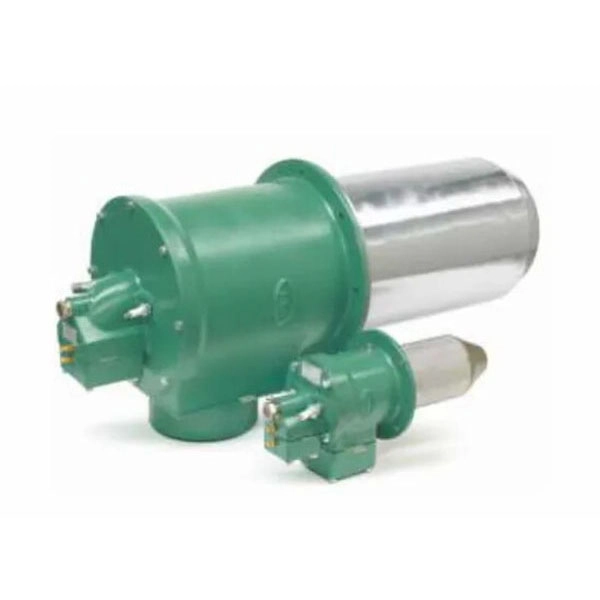
A high-speed burner is an industrial burner designed to produce a fast, high- momentum jet of combustion gases (high exit velocity) to increase heat penetration,achieve rapid heating rates, or serve direct-fired furnace applications. They are typically nozzle-mix or air-separated designs for gaseous or liquid fuels and are built for industrial furnaces, heat-treating, melting, thermal oxidizers, etc.
High-speed burners are a type of industrial burner designed to produce a focused, high-velocity flame. This design offers several advantages in various heating applications.
High Velocity: Unlike conventional burners that produce a more diffused flame, high-speed burners accelerate the combustion gases to very high velocities, often exceeding 100 meters per second (m/s) at the nozzle exit.
Entrainment: This high velocity creates a strong suction effect, entraining hot furnace gases into the flame path. This recirculation of hot gases improves temperature uniformity within the furnace and enhances heat transfer.
Turbulence: The high velocity also generates significant turbulence, leading to better mixing of fuel and air, which results in more complete combustion and reduced emissions.
Nozzle Design: The design of the burner nozzle is critical. It's engineered to create a focused, high-momentum jet.
Refractory Block/Quarl: Often, a refractory block or quarl surrounds the burner nozzle to protect it from the high temperatures and to help shape the flame.
Air and Fuel Inlets: Separate inlets for combustion air and fuel (natural gas, LPG, fuel oil, etc.) are precisely controlled to achieve the desired air-fuel ratio.
Ignition System: An igniter (e.g., spark igniter) is used to initiate combustion.
Flame Supervision: Flame sensors (e.g., UV sensors or flame rods) monitor the presence of the flame for safety purposes.
Improved Temperature Uniformity: The high-velocity jet and entrainment of furnace gases help to eliminate "cold spots" and achieve more even temperatures throughout the heated zone.
Enhanced Heat Transfer: The vigorous stirring of the furnace atmosphere and direct impingement of the hot gases on the workpiece can significantly increase heat transfer rates.
Reduced Cycle Times: Faster and more uniform heating often translates to shorter processing times.
Fuel Efficiency: Improved combustion and heat transfer can lead to better fuel efficiency.
Lower Emissions: Better mixing and complete combustion can help reduce emissions of pollutants like CO and NOx.
Versatility: They can be used in various furnace designs, including direct-fired and radiant tube applications.
Forge Furnaces: For heating metal billets prior to forging.
Heat Treatment Furnaces: For annealing, normalizing, hardening, and tempering of metals.
Melting Furnaces: For non-ferrous metals.
Drying Ovens: In various industrial drying processes.
Incinerators: For efficient combustion of waste.
Glass Melting Furnaces: In some specialized applications.
Noise: The high velocity of the combustion gases can generate significant noise, which may require attenuation.
Refractory Wear: The high-velocity flame can potentially increase wear on furnace refractory linings, especially if not properly designed or maintained.
Control Complexity: Achieving optimal performance requires precise control of air and fuel flow.
Take every customer request seriously.

Shuxin
Electromechanical
+86 15516359168
shuxin@sxburner.com
Room 504, Building 11, Wuzhou International Industrial Expo City, Old National Highway 310, Xigong District, Luoyang City, Henan Province
+86 15516359168
shuxin@sxburner.com
Room 504, Building 11, Wuzhou International Industrial Expo City, Old National Highway 310, Xigong District, Luoyang City, Henan Province